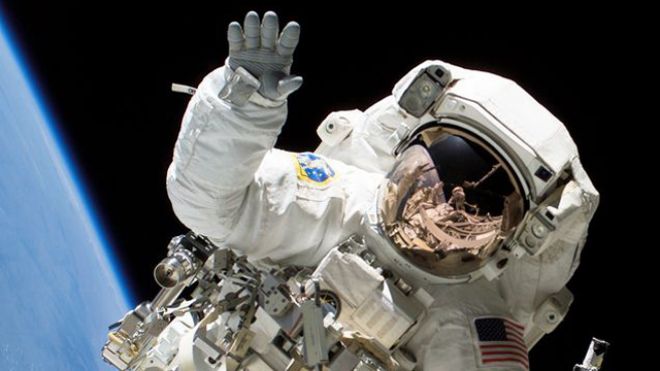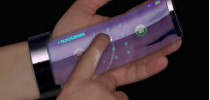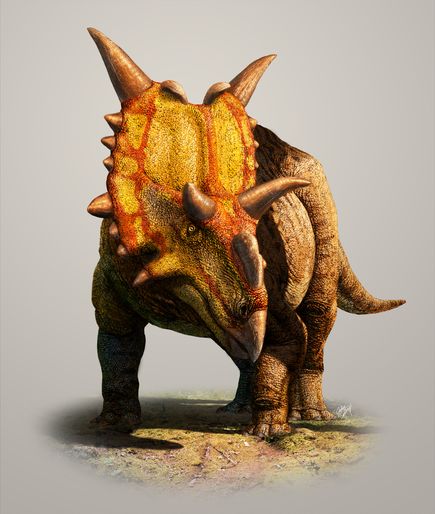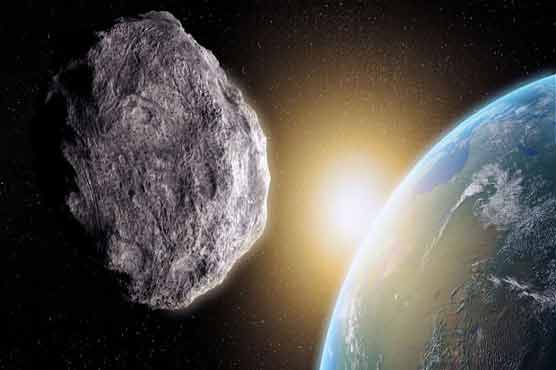- Web
- Humsa
- Videos
- Forum
- Q2A



Radiation in space might harm the brains of astronauts in deep space by accelerating the development of Alzheimer's disease, a new study on mice suggests.The research reveals another risk that manned deep-space missions to places such as Mars or the asteroids could pose, scientists added.
"This study shows for the first time that exposure to radiation levels equivalent to a mission to Mars could produce cognitive problems and speed up changes in the brain that are associated with Alzheimer's disease," study author Kerry O'Banion, a neuroscientist at the University of Rochester Medical Center, said in a statement.
Space is filled with radiation that can harm people. While Earth's magnetic field generally protects the planet, once astronauts venture beyond low-Earth orbit, they are constantly bombarded by a shower of dangerous particles known as cosmic rays. The longer an astronaut is in deep space, the greater the risk, which is especially of concern given NASA plans for to Mars by about 2035 — the round trip to the Red Planet alone could take at least two years.
For more than 25 years, NASA has funded studies to see what the potential dangers of space travel might be. For instance, past research analyzed the potential impact of cosmic rays on the risk for cancer and potential problems with the cardiovascular or musculoskeletal systems.
Now scientists have for the first time examined the effects space radiation might have on neurodegeneration — in particular, the biological processes in the brain linked with the development of Alzheimer's disease, which typically involves progressive mental decline over several years. They found "galactic cosmic radiation poses a significant threat to future astronauts," O'Banion said.
Perils of space radiation
O'Banion and his colleagues investigated a specific kind of space radiation known as high-mass, high-charged (or HZE) particles. These particles zip through space at very high speeds, likely the result of exploding stars and other deep-space catastrophes from elsewhere in the galaxy. Unlike cosmic rays consisting just of hydrogen nuclei, which solar flares generate, the mass and speed of HZE particles allow them to punch through solid objects such as a spacecraft, or any astronauts inside.
"Because iron particles pack a bigger wallop, it is extremely difficult from an engineering perspective to effectively shield against them," O'Banion said. "One would have to essentially wrap a spacecraft in a 6-foot (2 meters) block of lead or concrete."
The scientists focused on the impact of iron HZE particles generated by particle accelerators at the NASA Space Radiation Laboratory at Brookhaven National Laboratory in New York. Mice were dosed throughout their body with levels of radiation comparable to what astronauts might receive during a mission to Mars.
The mental function of the mice was tested with a series of experiments — for instance, they had to recognize places linked with unpleasant electric shocks to their feet — and rodents dosed with radiation were far more likely to fail at these tasks. The brains of the mice also showed signs of inflamed blood vessels, and possessed abnormally high levels of beta amyloid, a protein that accumulates as one of the hallmarks of Alzheimer's disease.
"These findings clearly suggest that exposure to has the potential to accelerate the development of Alzheimer's disease," O'Banion said. "This is yet another factor that NASA, which is clearly concerned about the health risks to its astronauts, will need to take into account as it plans future missions."
Space radiation vs. astronaut
It remains uncertain why these HZE particles might have this effect on the brain."This is, of course, the $10 million question," O'Banion told SPACE.com. The fact the researchers saw a blood vessel response, but not clear evidence of brain inflammation "suggests the possibility that the radiation effects are actually in the body of the mice, and that changes there might be affecting amyloid deposition."
O'Banion did caution "we gave the radiation all at once — the mice experienced over a few minutes what astronauts will experience over three years. We have no idea whether the biological effects of HZE particles will be the same when given at low dose rates. Many would argue that ours is a worse-case scenario, and that the changes are likely to be entirely different since the body might adapt to small chronic dosing."
In the future, O'Banion and his colleagues will examine the effects the brain experiences from exposure to radiation elsewhere in the body. They also plan to see whether space radiation might influence development of Parkinson's disease."I would add that there are at least three other laboratories pursuing similar studies," O'Banion said. "The nice thing about this is that we will soon know if our results hold up in other labs."
 As 65,000 people assembled at Mobile World Congress this week to reveal the cutting-edge advances coming soon to the world of smartphones, we asked you what features you're desperate to see on the phones of the future.
Readers responded with a raft of comments on the site, Facebook posts, Tweets and Vine videos, comprising their wish-lists for future inno..... Read more
As 65,000 people assembled at Mobile World Congress this week to reveal the cutting-edge advances coming soon to the world of smartphones, we asked you what features you're desperate to see on the phones of the future.
Readers responded with a raft of comments on the site, Facebook posts, Tweets and Vine videos, comprising their wish-lists for future inno..... Read more
 A newly identified species of spiky-headed dinosaur that roamed Canada 78 million years ago is the oldest known large, horned reptile ever discovered in North America.
"In terms of large-bodied ones that look like Triceratops, this is definitely the oldest," said biologist Michael Ryan, lead author of the new study describing the din..... Read more
A newly identified species of spiky-headed dinosaur that roamed Canada 78 million years ago is the oldest known large, horned reptile ever discovered in North America.
"In terms of large-bodied ones that look like Triceratops, this is definitely the oldest," said biologist Michael Ryan, lead author of the new study describing the din..... Read more
 Space and mining researchers from around the world are gathering at the Australian Centre for Space Engineering Research (ACSER) at the University of New South Wales (UNSW) in Sydney for the inaugural Off Earth Mining Forum.
They are looking at developing machines that can harvest materials from lunar soil while being remotely controlled from earth.\Exp..... Read more
Space and mining researchers from around the world are gathering at the Australian Centre for Space Engineering Research (ACSER) at the University of New South Wales (UNSW) in Sydney for the inaugural Off Earth Mining Forum.
They are looking at developing machines that can harvest materials from lunar soil while being remotely controlled from earth.\Exp..... Read more












 Clean Chit (Faisal Raza Abidi ...
Clean Chit (Faisal Raza Abidi ...  Akhir Kiyon - 16th December 2...
Akhir Kiyon - 16th December 2...  To The Point - 16th December ...
To The Point - 16th December ...  Capital Talk â
Capital Talk â  Kal Tak - 16th December 2013
Kal Tak - 16th December 2013  Bay Laag - 16th December 2013
Bay Laag - 16th December 2013  Kharra Sach - 16th December 2...
Kharra Sach - 16th December 2...  Awaam - 15th December 2013
Awaam - 15th December 2013 





 Gold Miner
Gold Miner  Superbike GP
Superbike GP  Whipsaw Fighter
Whipsaw Fighter  PacMan
PacMan 


